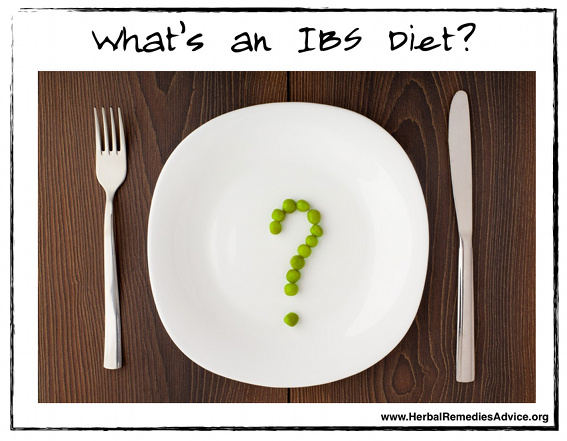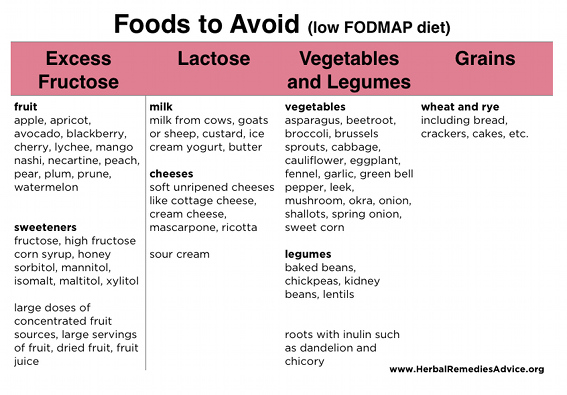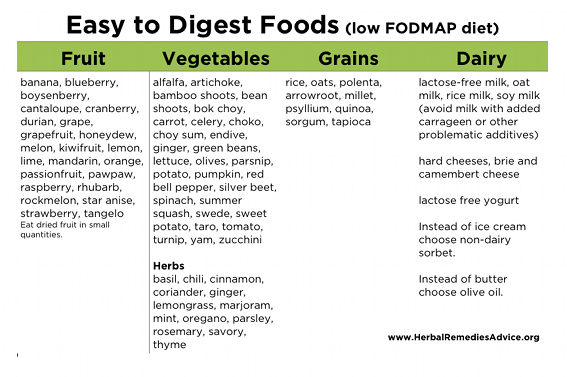Get weekly tips, recipes, and my Herbal Jumpstart e-course! Sign up for free today.

IBS Diet
Share this! |
|
|
Diet is an essential part of helping someone overcome their IBS symptoms. In part three of this series on Irritable Bowel Syndrome we will look at an IBS diet, including foods for IBS and foods to avoid with IBS. In case you missed it, here are the first articles in this series.
|
IBS Diet: Start with an Elimination Diet
An IBS diet can initially seem confusing and even frustrating. It can be extremely difficult to change food habits. It can also be difficult to let go of favorite foods, traditional foods, and foods you see others eat all the time without problems.
I’ve heard variations of the following from people many times:
“My family is Italian. It’s my ancestry. I can’t stop eating gluten and dairy.”
“If ice cream is so bad, why can my husband eat it and not have IBS?”
“I’ve eaten this food my whole life but didn’t have problems until two years ago.”
Studies show that at least 35% of IBS patients have food intolerances. I suspect that number is actually quite higher. It stands to reason that, if you are experiencing digestive problems, something you are eating may be causing that problem.
Food intolerances effect people of many different ancestries, are individual to the person, and can crop up in different ways. For example, someone may have had a rash their whole life that they didn’t know was attributed to a food intolerance. As they continue to eat the offending food, they develop digestive problems later in life.
It’s important to note that someone may be intolerant to a certain food for a short period of time. People with SIBO, for example, may find they can’t eat gluten while their SIBO is still active, but once they take care of the infection, gluten no longer becomes a problem. (For more information about SIBO see the article on Help for IBS.)
Other people may find that they need to avoid the offending food for the rest of their life in order to avoid IBS symptoms.
Here’s how I recommend doing an elimination diet. Begin by writing down a description of your current symptoms. Write as much as you can. How often do you experience the symptoms? How does it effect your life? And on and on.
Then continue by eliminating all common food allergens. This includes gluten, dairy, corn, soy, and eggs. Concentrate on eating lots of vegetables, healthy meats, fish and, if desired, non-glutinous grains. If eliminating all common allergens at once is too difficult then choose one and start there.
The elimination diet needs to last for at least 6 weeks. And it needs to be strict! Having a little cream in your coffee every day isn’t going to work. Having a small bite of a glutinous bread once a week isn’t going to work.
After six weeks write down your current symptoms. Be as descriptive as possible to include how often the symptoms effect you and their severity. Now compare that with your first description.
I know this journaling may seem like a silly exercise but it’s really important. It’s easy to forget how we felt six weeks ago. And with an elimination diet you may feel 100% better. However you may also feel only 40% better. When working with chronic illness there is rarely the ONE thing we do that makes the difference. Feeling 40% better is significant but, without comparing a descriptive difference, our minds may think “Well, I still have problems, that didn’t work”.
Foods to Avoid with IBS
Besides common allergens there are other foods that can be a problem for people with Irritable Bowel Syndrome. Foods high in fructo-oligosaccharides can be difficult to digest when a person’s digestion isn’t strong. Since fructo-oligosaccharides is quite a mouthful this is referred to as the FODMAP diet. A FODMAP diet removes the foods that can cause gas and bloating and promotes foods that are easy to digest.
Here is a list of foods to avoid with IBS:
Here is a list of foods for IBS:
Avoiding foods high in fructo-oligosaccharides can be a short term solution if you find that these foods increase stomach bloating and sensitivity. However, this is not an ideal long term solution. A better solution is to avoid these in the short term, but improve digestive strength so that these foods can be eaten without a problem. Many people might also find that fermenting these foods (especially cereals and vegetables) may also improve their ability to be digested.
Summary of IBS Diet
There is truly no one diet for IBS sufferers. Some folks with IBS may find that they can eat yogurt with no problem while another knows they can’t touch dairy without suffering consequences. Some people may need to follow a strict FODMAP diet for a time, while others may find those particular foods don’t effect them.
A special IBS diet may be a short term solution to bring relief while they are working on other root causes. Or, someone may find that the foods they were eating were the root cause of their problem and that by eliminating those foods they can live a life free from the debilitating symptoms that once plagued them.
While an IBS diet is extremely important it’s not the only way to help someone who has digestive complaints. In the next articles in this series we will explore some more avenues, including:
- Part 4: Herbal Remedies for IBS
- Part 5: Probiotics and IBS
- Part 6: Solutions for IBS with constipation
Return from IBS Diet to the Digestive System page
Return from IBS Diet to HerbalRemediesAdvice.org

Rosalee is an herbalist and author of the bestselling book Alchemy of Herbs: Transform Everyday Ingredients Into Foods & Remedies That Healand co-author of the bestselling book Wild Remedies: How to Forage Healing Foods and Craft Your Own Herbal Medicine. She's a registered herbalist with the American Herbalist Guild and has taught thousands of students through her online courses. Read about how Rosalee went from having a terminal illness to being a bestselling author in her full story here.


